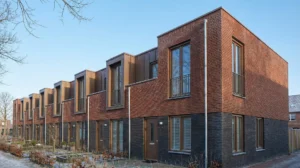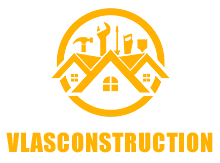Why Insulation Is the Key to a Successful Home Renovation
Introduction
When it comes to home renovation in the Netherlands, one of the most critical aspects to consider is insulation. With the country’s commitment to reducing gas usage to zero by 2050 and the increasing importance of energy efficiency, proper insulation is not just a luxury, but a necessity. In this article, we will delve into the benefits of insulation, the various types available, and how it can be a cornerstone of a successful home renovation.
Basic Concepts
What is Insulation?
Insulation is a material used to create a barrier between the inside of your home and the outside environment. It is designed to slow down the transfer of heat, keeping your home warm in the winter and cool in the summer. Common materials used for insulation include fiberglass, cellulose, and foam.
Importance of Insulation in the Netherlands
The Netherlands, with its long and cold winters, makes insulation particularly crucial. Proper insulation helps in regulating the temperature and humidity levels in your home, creating a more comfortable living environment. Additionally, it reduces energy consumption, which is a significant factor given the rising energy prices and the country’s environmental goals.
Benefits of Insulation
Energy Savings
One of the most significant benefits of insulation is the substantial reduction in energy consumption. According to Milieu Centraal, adding insulation to your home can save you up to 30% on your energy bills. This not only reduces your financial expenditure but also contributes to a more sustainable lifestyle.
Comfort and Noise Reduction
Insulation helps in creating a more comfortable living environment by maintaining a consistent temperature throughout the year. It also reduces noise pollution by absorbing sound waves, making your home a quieter and more peaceful place to live.
Environmental Impact
By reducing the amount of energy used for heating and cooling, insulation helps in lowering greenhouse gas emissions. This is a simple yet effective way to reduce your carbon footprint and contribute to environmental protection.
Increased Property Value
Proper insulation can increase the value of your home. A well-insulated home is more energy-efficient, comfortable, and environmentally friendly, making it more attractive to potential buyers and increasing its resale value.
Types of Insulation
Fiberglass Insulation
Fiberglass insulation is made from spun glass fibers and is the most popular type of insulation. It is affordable, easy to install, and has a high R-value, which measures its thermal resistance.
Cellulose Insulation
Cellulose insulation is made from recycled paper products and is another affordable and eco-friendly option. It is also effective in reducing energy consumption and is a good choice for those looking for a sustainable solution.
Foam Insulation
Foam insulation is made from a chemical reaction between two liquids and is the most expensive option. However, it is highly effective at sealing air leaks and has a high R-value, making it a valuable investment for long-term energy savings.
Practical Tips for Insulating Your Home
Prioritize Roof Insulation
Roof insulation is the most cost-effective way to reduce heat loss, especially if you use the rooms you are insulating actively. It is relatively easy to install from the inside, and the materials are not expensive.
Insulate Walls and Floors
After insulating the roof, focus on the walls and floors. Wall insulation, such as spouwmuur isolation, is relatively cheap and can be done by a third party. Under-floor insulation also helps in saving money and improving the energy label of your home.
Ensure Airtightness
When insulating, it is crucial to ensure the airtightness of your home. Proper ventilation becomes more important for air quality, and fixing air leaks is essential. Using strips for doors and windows can also help in this regard.
Consider Additional Energy-Saving Measures
In addition to insulation, consider other energy-saving measures such as installing solar panels, energy-efficient heating systems like heat pumps, and using HR++ glass for windows. These measures can further reduce your energy consumption and enhance the overall energy efficiency of your home.
Subsidies and Incentives
The Dutch government offers various subsidies to encourage energy-efficient practices. These include subsidies for insulation, energy-efficient heating systems, and solar panel installations. If you have taken two sustainability measures since 2022, you can be reimbursed for 30% of the cost, making these investments more accessible.
Cost Advantage of Energy-Efficient Homes
Energy-efficient homes, particularly those with an A-label, have a significant cost advantage. The net present value of the expected energy savings over time can be substantial, especially in scenarios where energy prices remain high. For example, in a high-price scenario, the cost advantage of an energy-efficient dwelling can increase by 55% to €33,900.
Conclusion
Insulating your home is a critical component of any successful home renovation in the Netherlands. It offers numerous benefits, including significant energy savings, improved comfort, reduced noise pollution, and a lower environmental impact. With the right type of insulation and additional energy-saving measures, you can enjoy a more energy-efficient home that is both comfortable and sustainable.
Recommendations and Best Practices
- Consult a Professional: Contact a professional insulation contractor to determine the best type of insulation for your home based on your budget, energy needs, and the climate in your area.
- Prioritize Insulation: Start with roof insulation, followed by wall and floor insulation to maximize energy savings.
- Ensure Airtightness: Pay attention to the airtightness of your home to maintain good air quality and prevent air leaks.
- Explore Subsidies: Take advantage of the subsidies offered by the Dutch government for insulation and other energy-saving measures.
- Combine with Other Energy-Saving Measures: Consider installing solar panels, energy-efficient heating systems, and using HR++ glass to further enhance the energy efficiency of your home.
By following these guidelines and investing in proper insulation, you can ensure that your home renovation project is both successful and sustainable.







